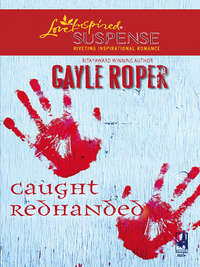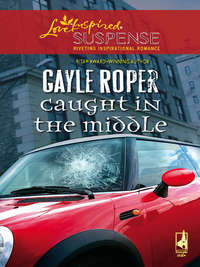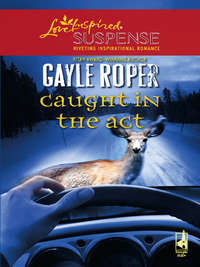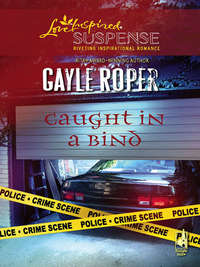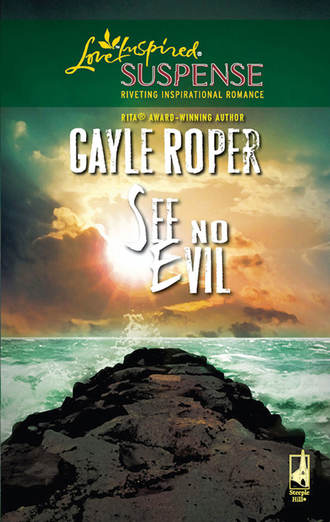
Полная версия
See No Evil
“The downtown guy?”
“The downtown guy. I was getting ready to go home around seven-thirty, eight, when I realized that Anna was still here, working in the model house. Since we’ve had some thefts recently—”
Poole went on alert. “What kind of thefts? Have you reported them?”
“Just lumber, nails, stuff like that. And no, I haven’t reported them. They weren’t significant enough to involve you, just bothersome, not even enough for an insurance claim. Anyway, I wanted to be certain everyone was gone before I left. I went to the model house to see how much longer she’d be.”
“And what were you doing there so late?” Poole looked at me.
“I was hanging window treatments,” I said. “The model opens on Saturday, and I’ve got to get everything finished before then.”
The sergeant nodded. “Did either of you see the victim arrive?”
I shook my head, as did Gray.
“What happened to bring you from the model to this house?” The sergeant’s pen was poised to take down our answer. “By the way, I’ll want you to come in tomorrow to give a more complete statement.”
“Okay,” I said, and told Sergeant Poole about standing on the ladder and watching the man with the gun.
“You saw him clearly?” Poole asked, his craggy face intent.
I nodded. “And he saw me. He shot at me. That’s when I hit Gray in the nose and made him bleed.”
Poole stared. “He shot at you.”
“But that was after he took off the stocking mask and the gloves.”
“We called it in,” Gray said. “911.”
“So even though a man with a gun shot at you, a man who had been wearing a mask and gloves, you came over here where you’d seen him and just happened to find the victim.”
It was hard to see Sergeant Poole’s face because of the way he stood, but I was pretty sure that if I could, I’d see disbelief. And put the way he put it, our actions did sound the height of folly. Well, we weren’t cops. We were just regular people who didn’t have much experience with gunmen. At least I didn’t, and I doubted Gray did. So we’d taken what probably looked like a foolish risk, like someone who came home to find his house robbed and went from room to room before the police arrived, just to be certain the burglar was gone.
“We heard him drive away,” Gray explained. “We figured it was safe.”
“And it took us a few minutes to mop Gray up,” I added.
Gray slid his hands into his jeans pockets. “There was no way I could leave Freedom’s Chase until I was certain everything was all right over here.”
“I came along because I wasn’t going to stay in the house alone, not with that bullet hole in the window.” I shivered at the memory.
Sergeant Poole grunted. “Point out the window.”
I looked toward the model house. “You can’t see it from here. You have to be out back.”
The sergeant started for the backyard, and we followed. When we rounded the corner of the house, I pointed.
“See? Right up there.”
Poole studied the window, the top third of it visible. “So you were standing on a ladder, hanging curtains—”
“Window treatments,” I corrected.
“—when you saw this man twice. Then you decided to come over here to be certain he hadn’t done anything to damage the property.”
Gray nodded. “That’s when we found Dorothy.”
“So you recognized the victim?”
Gray rubbed a hand over his face, wincing when he hit his nose. I winced with him. “Dorothy Ryder,” he said softly.
“And you knew her because?” Poole asked.
“Two reasons. Dorothy was a partner in Windle, Boyes, Kepiro and Ryder, the accounting firm. She handled my business. Also, she and her husband Ken bought this house.” He nodded toward it. “In fact, it was the first sale in the development. Dorothy liked this lot because it’s on the corner and has three big trees that we left when we cleared the land.” He indicated the trees that had enabled the woman officer to put her tape up at least partway around the house. “Dorothy would stop by almost every day to see how much more work had been done.”
Sergeant Poole was quiet for a moment. Then he looked at me. I gave him a nervous smile. “Can you describe this gunman?” he asked.
My smile became real. “I can do better than that, Sergeant. I can draw him.” At the surprised looks from both him and Gray, I reached for Poole’s notebook. “I teach art.” Look, Dad, it does come in handy!
I quickly sketched the man in the red shirt while Gray held his penlight for me so I could see what I was doing. I drew the man as I first saw him behind the house, burly body moving stealthily. Then I did two head sketches, one profile, one full on. The man’s dark blond hair hung over his forehead as it had done when he pulled the stocking off. I closed my eyes for a minute, letting him come to life in my mind’s eye. I studied my drawing and quickly added a couple of strokes to the bushy mustache that sat on his upper lip like a light brown wooly caterpillar. His rather beaky nose jutted out in the profile, and strong dark eyebrows arched over his eyes. I studied the sketch, strengthened his cheekbones, then studied the sketch again.
“That’s him.” I looked at Gray, then Sergeant Poole. “I don’t know what color his eyes were. Too far away, though I got the impression of dark. As to the hair, the stocking mask may be responsible for it falling across his forehead. He had to have been sweating in it.” She handed the tablet back. “But that’s him.”
“Wonderful.” Though Poole appeared pleased to have the drawings, I guessed from his lack of reaction that he didn’t recognize the man. “This will be a great help. Now I want you both to come in tomorrow morning to give a detailed statement and make another sketch.”
I blinked. “It’ll look just the same.”
“And that will be just fine.” He turned and started back to the house.
“Does that mean we can go?” Gray called after him.
“No, you can’t go yet,” Poole’s voice floated back to us. “But it shouldn’t be much longer.”
Sighing, I turned to Gray. He was eyeing the yellow crime scene tape with distaste.
“Bad PR. And it’ll still be here on the weekend, I bet. Who wants to buy into a development where there’s been a murder?”
“Maybe it’ll bring more people because they’re curious,” I said, wanting to help. He looked so discouraged.
“Yeah, curious to look but unwilling to buy.”
“Well, this house may be hard to sell, but if the others are anything like the model, they’ll go fast, Gray. Americans like big, remember?”
On that happy note, we fell silent. I wondered how much longer we’d have to stay here, and if I was allowed to call Lucy and Meaghan. I looked at my watch. Ten-thirty. It would probably be another half hour before they began to worry seriously about me. Besides, I realized, my cell was at the model house with my purse.
Finally the sergeant returned, Officer Schumann trailing him. “Thank you for mentioning that you stepped in the blood, Miss—” He checked his notes. “—Volente. It saves us spending a lot of time trying to trace the footprints.”
I beamed, happy I’d helped, certain he’d now perceive my innocence.
“I’m afraid I’ll have to take your shoe, though, just as I’ll have to take your shirt, Mr., uh, Grayson.”
“Edwards,” Gray said.
The sergeant looked at him blankly.
“It’s Grayson Edwards,” Gray said patiently. “Edwards is my last name.”
“Gotcha. I still need your shirt.”
I narrowed my eyes. “Surely you don’t think Gray—”
“Do you often suffer from nosebleeds, Mr. Edwards?” Poole was eyeing the bloody shirt again.
Gray shook his head. “Never.”
“Tell me again how this one occurred.”
“When Anna saw the man had a gun, she jumped back and her head—” With one hand he made as if to squish his nose.
The sergeant flinched. “Painful.”
Gray nodded. “Very.”
I felt bad all over again. Guilt, a woman’s most faithful companion.
Sergeant Poole held out a large plastic bag. Gray pulled his shirt off and dropped it in.
The officer turned to me. I pulled off my sandal and put it in another bag, trying not to think of the painful hike over all the little stones and rocks on the way back to the model house.
The sergeant handed the bags to Officer Schumann. “Seal these, Natalie, and tag them.” He turned to me. “Were you working alone?” He jerked a thumb toward the model home.
“Until Gray showed up.”
“When?”
“About eight o’clock or so.”
“And why were you still there at that hour?”
“I stayed at the shore an extra week with Lucy and Meaghan.”
Both men looked at me strangely.
What? Was I suddenly speaking Farsi or something? “I got behind on my sewing when I stayed that extra week, so I had to work late.”
Both men’s faces cleared, and Poole asked, “Who are Lucy and Meaghan?”
“Lucy Stoner and Meaghan Malloy. I share a house with them, and we all teach at Amhearst North. I teach art.”
“I can vouch for Miss Volente, Sergeant,” Officer Schumann said. “I believe she has taught my younger brother, Skip.”
Schumann. As in Skip Schumann? “Sure, I know Skip.” Can you say thorn in the side? “I don’t think art is his favorite subject.” I hoped I didn’t sound too sarcastic.
Officer Schumann just smiled.
“And where were you,” the sergeant asked, turning to Gray, “when she hit you in the nose?”
“I was climbing the ladder behind her.”
“The same ladder?”
Gray nodded. “It seemed a good idea at the time. Then he pulled his gun, she jumped back, and I—” He shrugged.
Sergeant Poole made more notations in his notebook. I noticed a bright blue Honda CRV pull to the curb. A woman with spiky brown hair and a determined attitude climbed out.
“The press has arrived,” Schumann muttered to Poole.
He glanced at the reporter who was bearing down on us as she pulled a small digital camera and a tape recorder from a large bag hanging over her shoulder.
“Merry Kramer.” The sergeant looked resigned but not distressed as the woman stopped in front of us. “Give me a minute, Merry, and I’ll be with you.”
“Sure, Sergeant.” The reporter gestured to the house. “Can I go in?”
“Can I stop you?” he countered.
“Well, sure you can, but I’m hoping you won’t.”
“Just stay out of everyone’s way, and don’t—”
“And don’t touch anything,” she finished for him. “I know.” With a little wave, she headed for the scene of the crime. Halfway there she paused and took several quick shots of the house and the people milling around.
Poole watched her with a little shake of his head. Then he turned back to Gray and me. “Schumann, give these people receipts for the shoe and the shirt.”
“Right, sir.” She handed us already written slips of paper.
“And you two, don’t forget to come in tomorrow.”
“Right,” I said as a black BMW screeched to a stop at the edge of the road.
A slim man climbed out. His face was creased with concern as he eyed the yellow crime scene tape, the emergency vehicles, and all the people, many in uniform.
“What’s going on here?” he demanded of anyone who would listen. He caught sight of Gray and homed in on him. “Gray, what’s happening?” He strode across the barren yard toward us, though he was obviously searching for someone else. “Have you seen Dorothy? Is she all right”
My mouth fell open. Was he who I thought he was?
Sergeant Poole stepped forward. “And you are?”
The man blinked. “I’m Ken Ryder.”
My breath caught. I looked helplessly at Gray, and saw a reflection of the same discomfort and uncertainty I felt. What could he possibly say?
Ken Ryder turned back to Gray. “I was supposed to meet Dorothy here about seven to seven-thirty, but I got held up at work.” He started for the house. “Is she inside?”
Sergeant Poole put a hand on Ken Ryder’s arm. “Stay here, please, Mr. Ryder.”
Ken frowned vaguely at the sergeant but kept talking to Gray. “I called her on both her cell and the home phone, leaving a message that we’d have to come here another night.” He shrugged. “I knew I was disappointing her, but I couldn’t help it. When I got home about a half hour ago, she wasn’t there, and she’d left no note like she usually does. This is the only place she planned to go this evening, so I’m here even though I can’t imagine she’d still be here.”
He took a breath, then kept talking. Nerves? Why? Did cops make him feel guilty too?
“You know how she loves to come check on the progress of things, but it’s so dark. How can she see? There’s no electricity in the house yet.” He looked confused as he glanced at the well-lit house. “Is there?”
“Where do you work, Mr. Ryder?” Sergeant Poole asked.
“Chester County BMW. I’m sales manager.” He reached in his pants pocket and pulled out an empty key chain with a green plastic tag which had white printing on it.
“Ride with Ryder?” Poole read.
Ken Ryder nodded. “My slogan. I guess she didn’t get my message, though why she’d still be waiting for me here, I don’t know.”
His voice trailed off as he seemed to see the coroner’s van for the first time. “What’s that for?”
No one said anything though the reporter held her tape recorder out in anticipation.
“Where’s Dorothy?” This time there was a note of panic in his voice. “I want to see Dorothy.”
Just then a gurney with a body bag lying on it was lowered out the front door opening.
I watched Ken Ryder’s face as he added two and two. “That’s not—”
Gray put out a hand and clamped it on Ken’s shoulder. “Easy, Ken.”
Ken ignored him and started toward the gurney, his movements jerky. “It can’t be!”
Sergeant Poole grabbed him by the arm. “Not now, Mr. Ryder. You just stay here with me. We need to talk.” He kept a firm hold as Ken Ryder tried to pull free. He stepped between the man and the gurney. “Mr. Ryder, I’m sorry for your loss.”
Ken Ryder turned horror-stricken eyes to the sergeant. “My loss!” He swung back toward the body bag. “No. You’re mistaken. You have to be. Not Dorothy!” His face crumpled as the gurney was lifted into the coroner’s van. “Not Dorothy!”
FOUR
Gray and I walked back to the model house in silence, Sergeant Poole, Officer Schumann and the police photographer following. They wanted to see the evidence of the shot. The reporter trailed along, too. I had been right. It did hurt to walk barefooted on this stony dirt.
As I limped along, I couldn’t get the picture out of my mind of the distraught Mr. Ryder all but collapsing as they wheeled away his wife’s body. I rubbed my arms to get rid of the emotional goose bumps, but they weren’t the kind I could rub away.
Gray saw the motion, and he looked from me to my old Caravan.
“Why don’t you just go on home, Anna?” he said. “It’s been a hard night. I’m sure the sergeant wouldn’t mind if I showed him what he needs to see.”
I sighed again. “I wish I could just leave, but I’ve got to go inside. My purse. And I’ve got to finish hanging that treatment before it gets too wrinkled.”
“Okay, get your purse, but then go. It’s after eleven. You’ve got to be beat. Finish the window tomorrow.”
“I can’t. I’ve also got to pin the drapes up off the floor so the rug can be installed tomorrow.”
Gray frowned. “I’m not much of a decorator, but wouldn’t it have been easier to wait until the rug was in to hang the things?”
“The rug was originally laid yesterday, but the interior designer—”
“That would be you.”
“No, not me. The woman I work for. She took one look at the rug and screamed, ‘It’s the wrong color green! Too yellow. Too yellow. Get it out of here!’ I was hanging the treatments in the master bedroom at the time and heard the whole thing.”
“So a new rug in a different shade of green arrives tomorrow.”
“Yep, and since I don’t know what time, I have to leave everything ready tonight.”
Gray nodded. “Let me get another shirt from my gym bag, and I’ll help.” He reached behind the seat of his silver pickup, parked behind my Caravan, pulled a black nylon bag out, and rooted around until he found a gray T-shirt. He pulled it over his head.
He wrinkled his nose. “A bit ripe. I wore it to play basketball today at lunch, but at least I feel decent. I’d advise you not to get too close though.” He smiled, and in spite of the emotional intensity of the evening, my toes curled.
Oh, for goodness sakes, Anna, get a grip!
We walked to the house and went inside. We found Sergeant Poole in the living room, staring at the ceiling. I looked up, and there was a hole where the bullet had struck. I hadn’t noticed it before.
“See it, Schumann?” Poole bellowed.
Schumann’s voice floated down the stairwell. “It’s lodged in the side of a night table.”
Rather the night table than me. I walked to the Tuscan Vine draped over the slipper chair.
“Let me hold the material for you.” Gray reached out a hand. “I promise not to bleed on anything.”
“What are you doing?” Poole asked, his gaze suddenly fixed on me.
I stopped, startled, one foot on the ladder. “I need to finish hanging this treatment.”
The sergeant shook his head. “Not tonight. The crime scene guys need to go over the room first.”
Gray made a noise of distress, then held up a hand as Poole glared at him. “I understand, Sergeant, but it does make things difficult for me and for Anna.”
“They shouldn’t be too long in here. Just pictures and the removal of the slug. Oh, and scrapings of the blood for analysis. I’ll let you know when the coast is clear.”
“There’s a rug being laid tomorrow,” I said.
“Not until we’re finished here there isn’t.”
“And the model house opens to the public Saturday.”
“Probably.”
Recognizing an immovable object when I saw one, I nodded at the sergeant and carefully laid the lovely silk fabric over the slipper chair again. This time I took care to smooth it.
“Go on home, you two,” Sergeant Poole said. “We’ll make certain the place is locked when we’re finished.”
I grabbed my purse. As Gray and I walked out of the room, the sergeant called, “By the way, the place looks very nice.”
“Thanks.” Nice. We had been going for a lot more than nice.
Gray walked to my Caravan with me. I smiled at him, uncertain how to end the evening. On one hand, I’d just met him. On the other, we’d shared a pretty intense experience. Before the situation became too awkward and for want of a better idea, I stuck out my hand to shake good night. “I’m glad you were here. I’d have hated to go through all this alone.”
He waved my thanks away. “I’m going to follow you home to make sure you get there, okay?”
I was impressed and felt warmed right to the cockles of my heart, wherever those were. “You don’t have to do that.”
“I know. I’d just like to.” He paused. “You don’t live, like, miles and miles away, do you?”
“No, about ten minutes.” Which, out in western Chester County, was nothing. “Really, I’ll be fine.”
“I’m sure you will be. Still, I won’t sleep unless I know you’re safe. It’s a guy thing.”
“Protect the ladies?”
He shrugged. “What can I say?”
My stomach growled, and I flinched. So feminine and becoming.
He laughed as I pressed a hand against my middle. “Me, too. I never did get any dinner.” He checked his watch, something he’d been doing off and on all evening. “I think the only place that’s probably still open besides Wawa or Turkey Hill mini-marts is the Wendy’s window. Is that okay with you?”
I nodded, unreasonably glad I’d get to spend a bit more time with him. “We can pick something up and take it to my house.”
Gray climbed into his truck and followed me to Wendy’s and then to the three bedroom brick ranch I shared with Lucy and Meaghan in a modest neighborhood set on a hilltop. On the way we passed my favorite house, a beautiful and unique place that was part restoration of a great historic barn and part new construction with lots of windows and gables. Somehow it all worked, and as I stared up the long maple-tree-lined drive, I grinned. My window treatments hung in that house.
I pulled into the drive of our ranch, a far cry from the mansion I admired from afar, but a whole lot more user-friendly. I parked in the turnaround, the place designated for my Caravan since it was by far the worst of our three vehicles, and the weather couldn’t possibly do it any harm. Gray pulled up in front of the garage door.
I climbed down from the van, glad he was with me. The strips of woods between the houses might be a welcome privacy screen most of the time, but tonight they looked like menacing hiding places for assassins looking to take out witnesses. I walked quickly to the front door of the dark house, Gray right behind me.
“Looks like everyone’s in bed,” I said as I unlocked the door.
We had just stepped into the entry hall when the bedroom hall light flicked on. A very tousled Lucy appeared in her Girls Rule, Boys Drool sleep shirt, talking as she came. Her red curls corkscrewed wildly about her head, and her big black cat Tipsy lolled in her arms.
“And just what took you so long, Miss Anna?” she asked. “I was getting worried about you over there in that unpopulated place all alone.” Then she saw Gray. An appalled expression on her face, she darted back out of sight.
“That’s Lucy,” I said around a laugh. “And the furry monster in her arms is Tipsy. Luce, this is Grayson Edwards.”
“Hi, Ed,” Lucy called, and Gray rolled his eyes. “What a shame Anna can’t keep you, ’cause you look nice enough, the little I saw of you, tall, handsome, but you’ve seen me looking yucky, so you’ve got to go.”
Now it was my turn to roll my eyes. Lucy was an original, and she said anything that popped into her mind, often in one long run-on sentence. Gray looked a bit thunderstruck, though he was smiling.
“Go to bed, Lucy.” I gestured for Gray to follow me to the kitchen. “I’ll tell you and Tipsy all about it tomorrow.”
“Yeah, I guess I’d better before I embarrass you more.”
“What makes you think I’m embarrassed?”
“Hah! I know you, kiddo. Good night, Ed.” Her bedroom door clicked shut.
“Is she a teacher too?” Gray asked, his eyes dancing.
I nodded. “We all teach at Amhearst North Intermediate School. Lucy teaches English.”
“I bet her classes are a riot.”
“This is sixth to eighth grades we’re talking. All classes are a riot if you don’t watch out.”
“Didn’t you say there was a third one of you?” he asked.
Just then a snore echoed down the hall.
“That’s Meaghan. She has sinus issues. And when she falls asleep, nothing wakens her, except maybe her own snoring.”
“And what does she teach?”
“She’s the guidance counselor,” I explained as we unwrapped our fries and square hamburgers at the kitchen table. “Want a soda?”
He nodded and waited while I got two cans from the refrigerator and two glasses from the cupboard.
“Don’t dirty a glass. I’m fine with the can,” he said.
“This is an all-girl household.” I poured the sodas and handed Gray his drink. “We use glasses for company.”
“Waste of a clean glass.”
“I bet you usually drink your milk right out of the carton.”
“Unless my mother’s visiting. Then I put my manners back on so she thinks she did a good job raising me.” He took a swallow. “And I usually also say grace whether Mom’s around or not. Do you mind if I say it now for both of us?”
“Please do.” As I bowed my head, I glowed inside. Handsome, successful and Christian?
“So,” I said after his amen, “did your mom teach you to pray too?”
He nodded. “Janet Grayson Edwards is the queen of prayers. ‘There’s nothing too big or nothing too small to talk to the Lord about,’” he said in an obvious quote.
“Sounds about right to me,” I said.
Gray unwrapped his second burger. “Well, I can tell you, I don’t remember ever praying as hard as I prayed tonight when the shots started flying—”


